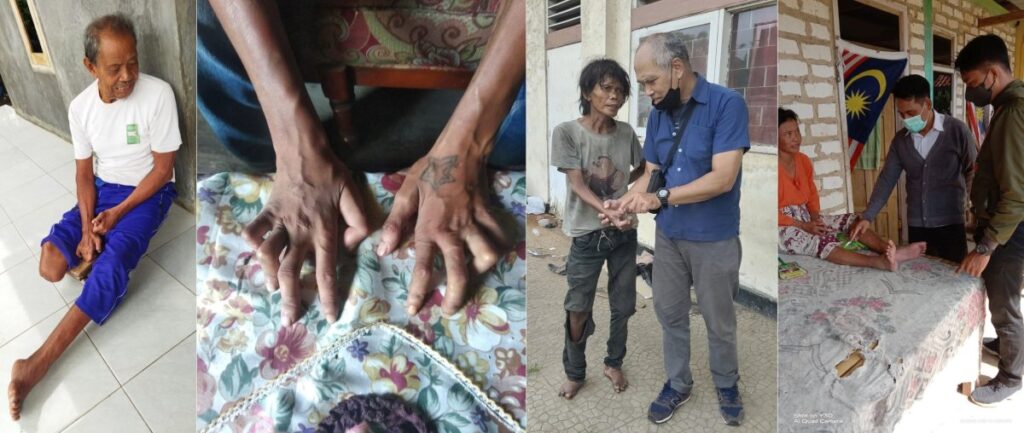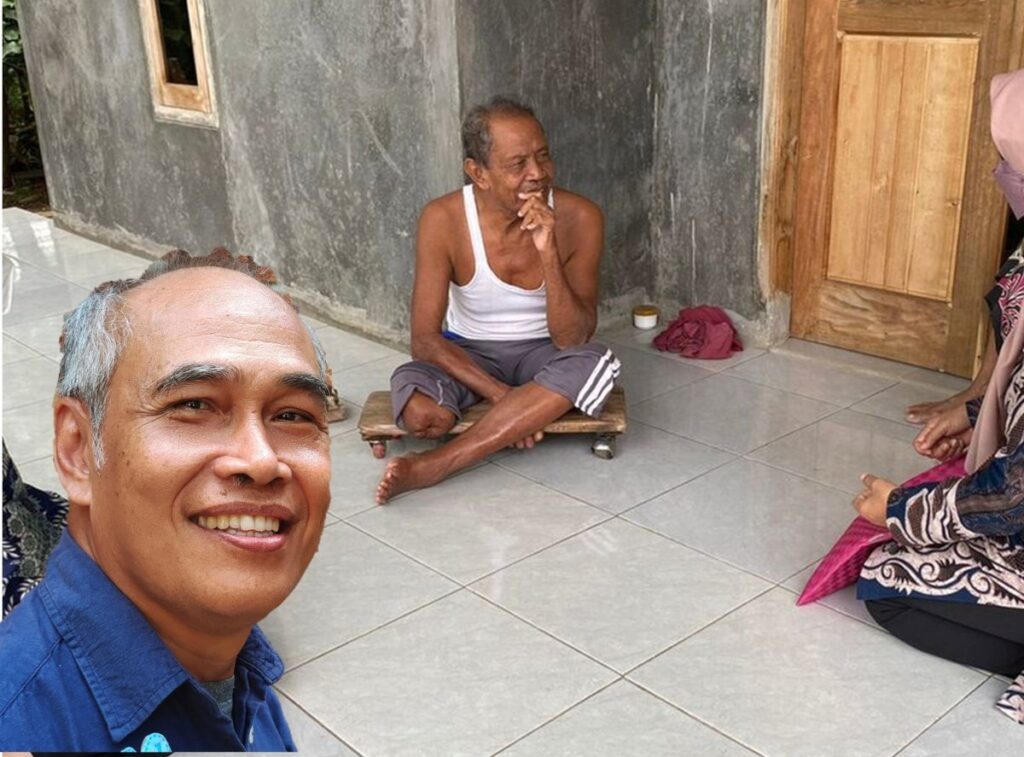Summary
Did you know that Leprosy is a tropical disease (NTD) that still occurs in more than 120 countries, with more than 200 000 new cases reported every year?
Dr. Johny Soelistyo hails from Indonesia. In his career as a medical practitioner, he has seen how people living with leprosy, even though already treated and therefore no more contagious, face discrimination and stigmatization. This injustice inspired him to work on a methodology that on one hand will create awareness about leprosy, and on the other will empower people who live with leprosy through skills that enable them to economically contribute to society. Johny (66) is one of the 2023 kanthari participants.
by Johny Soelistyo,
“One day, during Ramadan, I was on my way to meet Fat, a lady in her 50s, when a call for mid-day prayer sounded over the village. When I knocked, her son opened the door. He said that his mum was taking a rest. ”I am sleepy, because of fasting” she shouted from her bed. She was reluctant to come and meet me. When I introduced myself and she heard that I am a doctor, she immediately sharply responded “I am healthy”.
Now the conversation became awkward, it was obvious that she didn’t want to continue the chat. Some red patches on her cheek and forehead, with slight thickness and a swollen earlobe indicated a clear multibacillary type of Leprosy. It was not possible for me to examine her in further detail, yet I asked her if she ever took any medicine from the health centre. She answered, “I never take any medicine from anywhere ever.”
Al’Fath, a young male nurse who accompanied me to meet Fat in Ranu Grati area, tried to seek information from Fat’s neighbours. He got information that Fat always retracts from social interaction. Never attended any activity in the mosque, and always refuses any visitation from village authorities. I saw children playing on the floor of the neighbouring house, killing time during Ramadan, awaiting iftar, the breaking of fasting. To reach her home, Fat needs to use the path next to her neighbours house. Because of that, the neighbour knows about Fat’s movements and interactions within the community. He noticed that Fat hardly interacted with anyone.
Besides Bromo Tengger national park in Pasuruan District – East Java, Ranu Grati Lake is promoted as a tourism destination. The 1300 Hectare Lake provides resourceful water for paddy fields and sugar cane plantations. The lake has a lot of fish that are a source of natural protein for the inhabitants.

Fat lives with her son Mansur on a property that measures around 400 square meters, it has a separate latrine hut apart from the main house, and there is plenty of space to keep firewood stocks. At the back of their house, she keeps 4 cattle in a cage, so they cannot be stolen.
I started a conversation with Mansur, he told me that he feeds the cattle with grass he collects from the surrounding, sometimes he gives the livestock paddy straws. “You can make fermented straw and feed your cattle”, I said. “How can I do that?” he asked with a sparkling face. Finally, I found a way to start a warm discussion. We chatted away and simulated how to make silage, as the surrounding resources are available easily. Fat watched and listened to our conversation attentively yet remained her suspicion towards me.
“It is difficult to identify leprosy cases, as those who are affected are living by themselves and usually do not come to our health center. So, I have to reach out to them, however, even that is challenging as many are rejecting us”. This statement came from Alia, a health centre nurse staff who is in charge of the leprosy control program. “Our health center is located near Ranu Grati Lake, a popular tourist destination, and I always feel very sad, when I found a late-stage leprosy case, especially where deformity has already started”, Alia further explained.
She has been holding the position since 2019 and fell in love with a person who was affected by leprosy, but none of the medical professionals could provide proper rehabilitation and reconstruction surgery. The stigmatization of people with leprosy is very high.
Many times, Alia had to consult a leprosy specialist by telephone, because the local regular doctors feel disgusted and don’t want to see the leprosy patients. “I will surely become your partner if you could provide such health care to those leprosy patients” Alia expressed her hope, just like seeing a light at the end of the tunnel.
Ranu Grati, 2023



